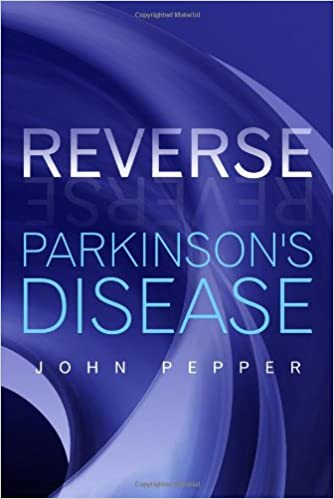Emotional Trauma, Fascia and BreathingBody Memories and Fascia (Connective Tissue)
It brings together Gary Sharpe’s section on Fascia and Connective Tissue with Lilian Sjøberg’s concept of Body Memories
It brings together Gary Sharpe’s section on Fascia and Connective Tissue with Lilian Sjøberg’s concept of Body Memories
After only six years of regular, energetic exercise, he no longer appears to have Pd
By John Pepper
Reverse Parkinsons disease
Find it in the shop.

I would recommend everyone to read the book by Prof. Gerald Pollack “The 4th Phase of Water”
A Shadow at the Heart of University Science.
“I think in future years, people will look back on this time as one of total shame for academia. The very people in academia who should have been leading the charge to question what governments were telling us and to pursue the truth, have actually been the ones most prominent in censoring any attempts to pursue the truth. It has been largely academics who pushed the government into the extreme restrictions and lockdowns. These include psychologists who were prominent at promoting the campaign of fear, which is well documented in minutes of meetings, a campaign to force people to comply with increasingly harsh restrictions and infringements of civil liberties, and then to close down any dissent against that” ~ Prof. Norman Fenton
A very revealing exploration of some of these background issues, which I would recommend everyone to read, is provided by the Prof. Gerald Pollack in the introduction of his book “The 4th Phase of Water”, and a more in-depth analysis of everything which may be wrong with modern University science is expanded on by Dr Iain McGilchrist in his new book “The Matter With Things: Our Brains, Our Delusions and the Unmaking of the World”. My own observation is that academia is self-selecting and re-enforcing of certain “personality types”. Later, through Dr Laurence Heller’s work on Developmental Trauma, I came to know that these traits are actually trauma Survival Styles, and I could map what I saw in academia, and indeed, how I personally was manifesting in the world, almost perfectly onto these . After all, it takes a certain way of attending to the world to be able to spend decades hyper-focussed on an ultra-specialized area of science.
I have to agree that specific individual [by no means all] University based scientists or “academics” are far from being the heroes in the story of what has happened to us globally over the past two years. However, to my mind, this confluence of events only revealed a darkness which was lurking all along in the halls of academia, for I believe there is a hidden shadow of trauma which pervades University science. This is something I noticed and encountered first hand myself during two decades as an academic, although I didn’t have the words or concepts to describe or explain what I was seeing, and partaking in, at that time.
“The Ebony Tower” in the title is a play on words on “The Ivory Tower”, the latter being a metaphor often used for University life: a state of privileged seclusion or separation from the facts and practicalities of the real world, in favour of mental and esoteric pursuits. I make the case, in agreement with Prof. Fenton above, that the opportunity provided by the global situation emerging from china, produced a nightmarish version of this, as the trauma survival styles were unleashed without the usual checks and balances inherent in the system. Thus the Ebony Tower is the metaphorical place, the dark spire, from which certain academics, even more cut off from their peers than before, shielded from the civilization-level impacts of their words and behaviours behind Zoom screens, and utterly corrupted by the immense power to control peoples lives, have touched us all with the shadowy tendrils of the total authority granted to them by governments.
By Gary Sharpe

In my own healing journey, I have found myself changed. Actually, the healing and this change were necessarily connected.
In my own healing journey, I have found myself changed. Actually, the healing and this change were necessarily connected.
I couldn’t learn to have compassion for myself, when I had not cultivated compassion for others. I couldn’t forgive myself, when I couldn’t offer forgiveness to others. I couldn’t care for myself, if I didn’t care about others. I couldn’t hold self-respect, without being respectful of others. I couldn’t be redeemed, when I didn’t extend redemption to others.
The arrows also put the other way too, and there are many virtuous cycles and positive feedback loops. So all of these things are needed and necessary in order to heal.
Indeed, when I now feel in to, and touch, the disdain, despite and contempt I used to have for fellow humans who did not think like me, I can viscerally feel the tensing, the contraction, the holding, the rage, the violence, the sickness. I am diminished.
I am noticing a rising tide of anti-humanism in the world, a belief being held by more and more people that humanity is irredeemable, a scourge that should be wiped from the planet, and the Earth would just be better off without us. This is a pernicious form of collective self-loathing. These feelings, chronically held, about our fellows, block the healing.
This is why I keep, and will keep on, speaking out about the dehumanization, demonizing, name-calling, scapegoating, blaming, shaming, castigating that is going on. This is terrible for us, a significant detriment to our individual and collective physical and mental health.
We are all, whether the purveyors, or those on the receiving end, diminished by it. It will be our undoing.
Yes, I agree collectively, we are prone to very stupid and self-defeating behaviours, actions and deeds, capable of atrocities and evil. Yes, we are very much on the wrong path right now, and doing enormous damage to ourselves and the planet. Yes, there are also amongst us, a few individuals who are totally irredeemable and lost.
Yet, I now see that a lot of people, perhaps the majority, are capable of change, have the capacity for acts of kindness, are striving to be good in terrible circumstances, are seeing the folly of our current path, and who are wanting and yearning for something better for everyone.
Indeed, I encounter more and more people who have seen the error of our ways, both on a personal and collective level, who are speaking up and speaking out, who are also striving to change, heal, improve, to become and be better.
More and more, everyday.
Here.
You.
You fill me with hope that better days are still possible.
By Gary Sharpe

Love, courage, kindness, giving benefit of the doubt, receiving gratitude, humour, the natural world, simple pleasures, social groups, metaphor, dancing, music.
Love, courage, kindness, giving benefit of the doubt, receiving gratitude, humour, the natural world, simple pleasures, social groups, metaphor, dancing, music – these are the flowers of healing – water them, fertilize them, and make room for them.
Hate, chronic fear, othering, dehumanising, lack of frivolity, anhedonia, staying indoors, addiction, isolation, loneliness, literal mindedness, immobility, discord – the weeds of dis-ease – don’t cultivate these, mind they don’t flourish.
By Gary Sharpe

A few terms and definitions which I thought may help folks feel into the states of being, required for health and restoration, detoxification and anti-inflammation.
A few terms and definitions which I thought may help folks feel into the states of being, required for health and restoration, detoxification and anti-inflammation.
Since many of the symptoms of many chronic illnesses have one-to-one correspondences with ingrained stress symptoms, all my studies point to the key for reducing these symptoms is in the ability and willingness to put the brain and body in such states of calm for prolonged periods.
Indeed, these states of calm are known to be the conditions under which the body can self-repair, detoxify and address inflammation. Being under chronic stress, psychological stress, or chronic fear effectively exiles us from these states, and hence necessarily results in increasing toxification and inflammation of the brain and body.
Here are a just of few of the very many conditions we have found there is good scientific literature for which supports the case that chronic stress is causal, triggering, and/or exacerbating, and hence for which stress reduction will be vital for recovery:
[If anyone finds other examples, let us know and we can add to the list – maybe google the name of your own diagnosis together with the word ‘stress’].
By Gary Sharpe

Gary Sharpe’s course about his understanding of diseases and the nervous system
“The common underlying problem is the modern world, and how we attend to it”
Road to Recovery is a book like no other book on Parkinson’s. Other books on Parkinson’s share a common theme. They tell us in the introduction that Parkinson’s is a degenerative disease. My research reveals this assertion is blatantly false. More and More people are reversing their symptoms these days. I believe that anyone can.
Dr Gary Sharpe, Phd, is a scientist, diagnosed with Early Onset Parkinson’s Disease. After six years of dying inside, he started “Out-Thinking Parkinson’s” in order to pursue pragmatic and practical solutions towards progressive symptom reduction
The book explains how and why trauma, toxins and stealth infections create symptoms diagnosed as a “disease”, usually then treated without any further investigation into prodromal history, early life, toxic load or the possibility of infection.
The book explains how and why trauma, toxins and stealth infections create symptoms diagnosed as a “disease”, usually then treated without any further investigation into prodromal history, early life, toxic load or the possibility of infection.
The course provides the evidence that PD and many other diseases are significantly affected by stress and trauma, and instead of focusing on “curing” the disease, helps people to reduce any stress in their life, and explains how taking this biological perspective, one can do a lot to minimize symptoms.